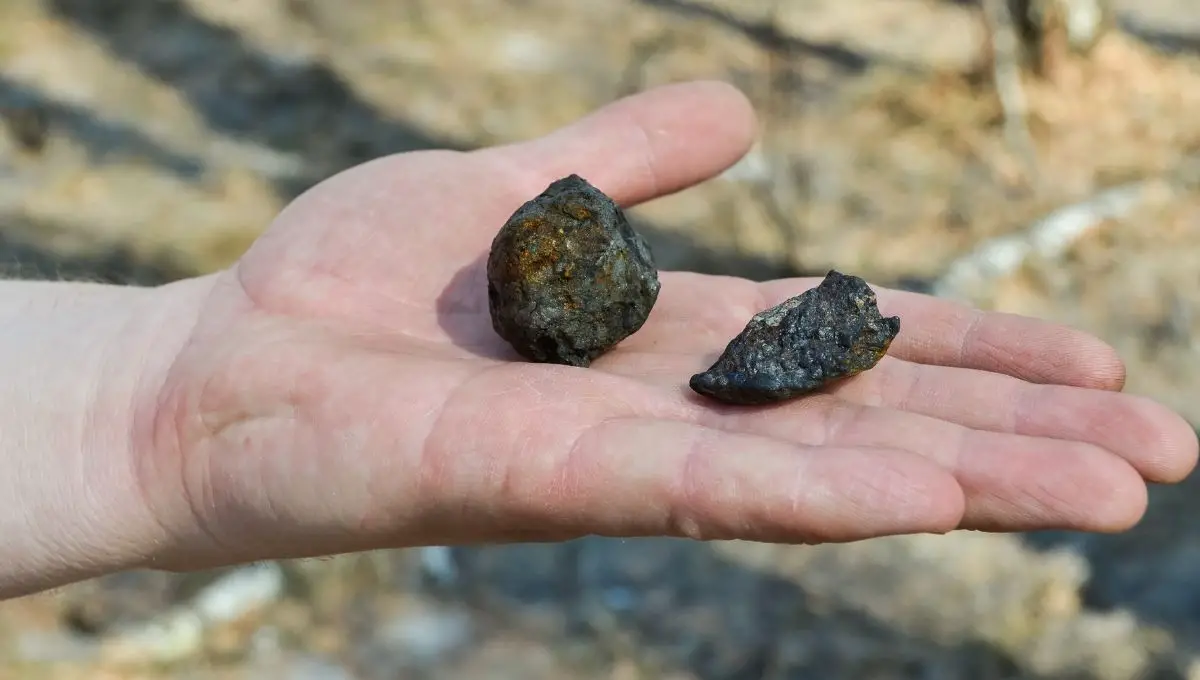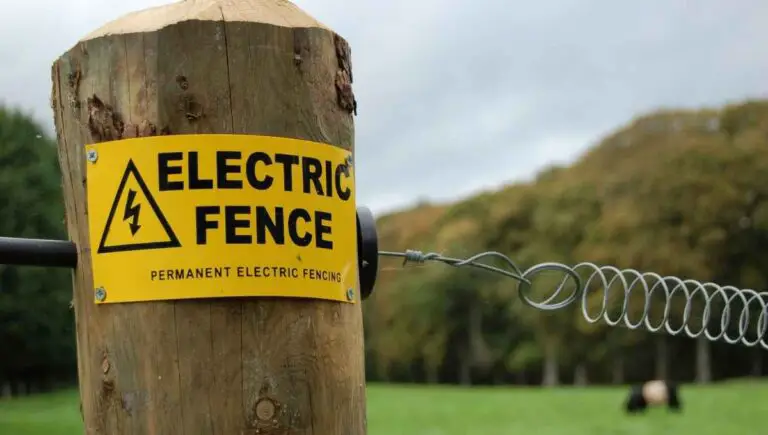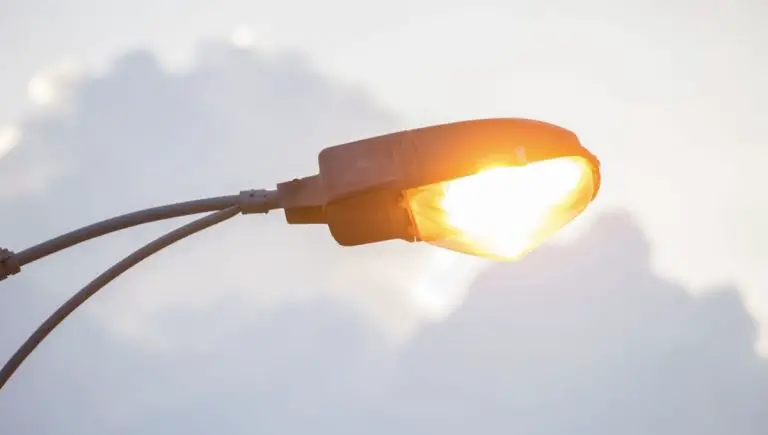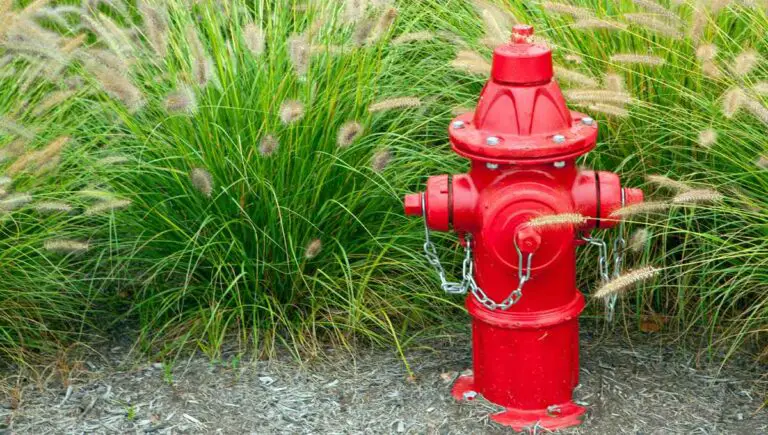Do I Own a Meteorite if it Falls on My Property? (The Laws)

Finding a meteorite on your property is an exciting discovery, but it raises the question of ownership. Many people wonder if they can claim the meteorite as their own if it falls on their property. Can you legally keep it?
In most cases, if a meteorite falls on your property, you do own it. The meteorite becomes your property just like any other object that lands on your property. However, there may be some exceptions to this rule depending on the location and circumstances of the fall.
We’ve done all the necessary research to find all possible outcomes of finding a meteorite on your property.
So stick with us to find out what NASA has to say about finding a meteorite in your backyard!
This post contains affiliate links from Amazon and other stores. This means Yard Blogger may earn a commission if you make a purchase using any of our links. Please refer to our full affiliate disclosure policy for full details.
Here’s a Quick Pro Tip!
If you’ve found yourself a meteorite and you want to keep it safe, you’re going to need the right equipment!
We recommend the following products to keep you and your discovery safe:
1. Gloves – Don’t pick up the meteorite bare-handed!
2. Tongs – If you don’t want to risk your hands harming the meteorite, use these instead!
3. Bags – Once you pick up your new treasure, you need to protect it!
4. Desiccant packs – Keep moisture at bay and keep your meteorite protected.
Finding Meteorites!
If you’re walking around your property and find a shiny rock on the ground, the compulsion will always be to pick it up and take it inside with you.
If you think your new decor came from outer space, however, there are some things you should know before you pick it up.
Can You Keep a Meteorite That Lands on Your Property?
You can keep a meteorite that lands on your property. However, if you find any debris from a spacecraft, you do have to give that back to the government. They’re pretty picky about that kind of thing.
NASA does recommend that if you are going to pick up and save a meteorite that has landed on your property, you should have the proper equipment to do so.
Make sure you have a pair of tongs or some clean gloves to pick it up and store it properly with a Ziploc bag and some desiccant to keep it safe!
Who Owns a Meteorite That Lands on Your Property?
If you own the property a meteorite landed on, then you also own the meteorite. While you can choose to notify authorities of your find, you are not obligated to do so. However, if you found spacecraft debris, expect to have to return it.
Congratulations on your new meteorite! Be careful not to pick it up with your bare hands. Don’t worry. It won’t hurt you, but you might accidentally hurt it.
Use gloves to protect your extraterrestrial find from contamination, including dirt and oils on your hands.
Who Owns a Meteorite That Lands on Public Property?
If you find a meteorite that has landed on public property does not specifically belong to one individual or group. This means that anyone can take meteorites on public property.
According to the Bureau of Land Management (BLM), “Meteorites found on public lands may be collected by recreationists and hobbyists with some limitations.
Meteorites can be collected for scientific and educational purposes, and can also be commercially collected.”
Can You Keep a Meteorite if You Find It?
If you find a meteorite out in public, you can keep it. However, you should not sell, barter, or otherwise trade specimens. According to the BLM, it is acceptable to casually collect up to ten pounds of meteorite specimens per year.
No permits are required for you to pick up a small meteorite as a casual collector.
That being said, if you’re unsure who owns the land you found the meteorite on, or if you are a professional, be sure to check before you take a specimen.
What to Do if I Found a Meteorite?
If you found a meteorite on your own property, you don’t have to do anything. You can carefully (use gloves!) pick up the meteorite and bring it into your house if you would like. Meteorites are completely harmless.
If you would like someone to come and check out your meteorite, you can always contact the Meteorological Society.
They may be able to tell you more about your space rock and if it should be sent anywhere for study!
What Do You When a Meteorite Lands in Your Backyard?
If a meteorite has landed in your yard, don’t panic! Meteorites are completely harmless. You can either leave the meteorite alone or pick it up and bring it inside.
If you are going to bring your meteorite inside, you should follow these simple steps:
- Use gloves – You don’t want to touch a meteorite with your bare hands, as you may contaminate the specimen. Don’t fret. There is nothing on a meteorite that will harm you.
- Keep it contained – Something as simple as a Ziploc bag is needed to keep your meteorite clean and away from dust, dirt, and debris.
- Keep it dry – Use something like this desiccant pack to keep moisture away from your find. Excess moisture may cause erosion and other damage to your space treasure!
Is It Illegal to Keep a Meteorite?
If you found a meteorite on your own property, or if you found it on public property, it is not illegal to keep it. However, if you are on private or government property, you cannot keep it.
If you illegally collect a meteorite, you may be cited under the Federal Land Policy and Management Act (FLPMA) for the illegal removal of personal property or scientific resources and natural objects.
This is highly frowned upon by both the National Park Service and U.S. Fish and Wildlife.
Who to Contact if I Find a Meteorite?
If you find a meteorite on your own private property, you are not obligated to inform anyone. However, if you would like to have someone evaluate your find or help remove a large specimen, you can contact the Meteoritical Society.
The Meteoritical Society has a full listing of institutions that have been cited in their bulletins. No matter where in the world you like, they can help you find someone close by who may be able to help.
How to Identify Meteorites
If you think you’ve had a meteorite fall on your property, the next step is identifying if it really is extraterrestrial in origin.
Before you call Scully in to assist, try these easy ways to identify if you’ve found a meteorite.
How Do You Know if You Have Found a Meteorite?
You’ll know you found a meteorite if the specimen in question is unusually heavy (dense) for its size. You may also find that it’s magnetic. It may also have a thin, shiny crust where it melted slightly upon entry into the Earth’s atmosphere.
Most meteors will have iron and other overly dense materials as part of their makeup. Not only will this make them heavier than most other rocks, but the iron causes them to be magnetic.
A meteorite will also be dark in color, according to the Meteorite Museum at the University of New Mexico.
How Big Is a Meteorite?
Most meteorites are not that big. Think the size of a pebble, not the size of a boulder. Of course, the meteorite you may find in your backyard is typically only about five percent of the whole meteor.
Because meteorites come from outer space and have to get through the Earth’s atmosphere, they tend to break up into much smaller pieces upon entry.
So, while hearing a meteor hit Earth may sound scary, you can rest easy. It’s just a pebble hitting the dirt!
How Do You Know if a Rock Is a Meteorite?
You can tell if you found a meteorite by checking a few basics. Start by seeing if it’s magnetic. Most meteors are made out of a heavily magnetized iron. You may also notice that the specimen in question seems very heavy for its size.
Another key factor to check is if the specimen has any bubbles or holes. If it does, it’s not a meteorite. You may also want to see if it has a thin crust around it.
Most meteorites will have some crust due to the rock melting upon entry into Earth’s atmosphere.
What Do Fallen Meteorites Look Like?
Meteorites that have just recently fallen to Earth will look like rocks covered in soot or ash. This dusty appearance comes from the meteorite having melted when it fell through Earth’s atmosphere, causing a phenomenon commonly referred to as a ‘Fusion Crust.’
A fusion crust will cover the entire outside of the meteorite and will look similar to an eggshell in appearance, if not in color.
Expect it to be black or a sooty grey, not at all like the eggshells you see in the supermarket!
What Does a Meteorite Look Like When It Hits the Ground?
If you stumble across a meteorite that has just hit the ground, you’ll notice it has some black ash or soot around the outside. You may notice that it has a fusion crust, which naturally forms as the meteorite falls through Earth’s atmosphere.
This crust may appear shiny, depending on what minerals make up the meteorite. You may also notice that it is strangely heavy or that it attracts magnets.
This is because most meteorites contain a magnetic-rich form of iron.
What’s the Difference Between a Meteor and a Meteorite?
Essentially, meteors are made up of cosmic dust and very small pieces of rock. These burn up upon entry into the Earth’s atmosphere. A meteorite is a small rock that has broken free of an asteroid and survives intact to reach the Earth’s surface.
While most people assume that meteors and meteorites are the same things, they technically aren’t. If you’ve ever seen a shooting star, what you actually saw was a meteor vaporizing.
A meteor is not a star, however.
How Do You Clean a Meteorite?
To clean a meteorite, start by keeping them clean and dry. If you do need to clean them because they’ve gotten dirty, use a Q-tip and calcium, lime, and rust remover. Then, rinse your meteorite with alcohol to make sure it’s dry.
Meteorites are susceptible to rust and other damage, so it’s important you keep them dry. Using a CLR cleaner on rust spots can help keep them shiny and new-looking.
If you live in a humid climate, you may want to consider picking up one of these mini dehumidifiers.
Where Can I Authenticate a Meteorite?
If you need to authenticate a meteorite, reach out to your local college or university. If there are any natural history museums close to your home, you may also want to reach out to them.
NASA is currently not accepting new specimens. If your local university has a geology or natural history organization, you may want to contact them.
They can either authenticate your meteorite or point you to another organization that can.
How Can I Test a Meteorite at Home?
A great way to test a suspected meteorite at home is to grab a kitchen magnet off your fridge. If the magnet sticks to the rock, you may have a meteorite on your hands! If your specimen is oddly shaped, try tying a magnet on a string and dangling it next to the meteorite.
If the magnet moves towards the rock, it’s magnetic! While most meteorites contain enough magnetic iron to be unmistakable, some pieces will only have trace amounts.
If you have a stony meteorite, it may not be so easy to tell if it’s magnetic, hence the need for a string test.
How Rare Is It to Find a Meteorite?
Finding a meteorite is a rare event. Only about 15 meteorites are found a year in North America. Most of those are found in the Southwest portion of the United States, between Texas and California.
There have only been about 1,800 meteorites found in the last 120 years, so don’t be disappointed if you haven’t been lucky enough to find one.
You’re most likely to find one if you live in or travel to arid climates.
Are Meteorites Valuable?
Anytime you find something shiny, you want to know if it’s worth anything. Why wouldn’t that be true for space rocks?
Stick with us while we delve into how much a meteorite may earn you!
Are Meteorites Worth Anything?
If you are able to authenticate your meteorite, you may find it will sell for at least $1,000. That being said, if it’s not authenticated, then you’ve just got a shiny rock, which you might be able to offload on someone for about five bucks.
Typically, the worth of a meteorite depends on how large it is and what minerals make up the specimen. Most collectors will offer prices by the weight of the specimen, starting at 50 cents a gram.
Is a Meteorite Worth Money?
An authentic meteorite is worth some money. How much depends on its mineral composition. Typically, if you sell a meteorite, you’ll get 50 cents per gram in the United States.
Of course, in most cases, you’ll be selling your new find to a casual (or a not-so-casual) collector using a site like eBay.
Be careful buying and selling meteorites, as the BLM requires permits!
Are Meteorites Valuable?
An authenticated meteorite is very valuable to the scientific community and to passionate collectors. Some meteorites have sold for as much as $1,000 per gram, though typically, you’ll only get between 50 cents and one dollar per gram.
A meteorites value is determined by a number of factors, including, but not limited to:
- Rarity
- Condition
- Size
- Visual Appeal
- Mineral Composition
Can You Sell a Piece of Meteorite?
If you found a meteorite on your own property, it is yours to do with as you will. That being said, you can sell it on a site like eBay or sell it to a professional directly.
The buyer may request authentication papers for your find. Additionally, if you were not on your own private land when you found the meteorite, you need to be sure all paperwork is in order.
You also need to make sure you did not need (or already had the proper) permits for excavating your meteorite.
Where Can I Sell a Meteorite?
There are plenty of private buyers floating around the internet looking to buy a meteorite. However, to keep both you and the buyer safe, we would recommend using a site such as eBay for the transaction.
Be wary of scams floating around online. People who genuinely care for and appreciate meteorites will want to have authentic pieces for their collection.
Unfortunately, others may try to cheat you out of your find by telling you it’s worthless. Always talk to an expert before selling or buying!
How Much Would You Get for a Meteorite?
Typically, expect to get $0.50 cents to $1.00 US dollar for each gram your meteorite weighs. Of course, this number is variable depending on the size and mineral makeup of your specific meteorite.
Meteorites that are made from rare minerals have sold for up to $1,000USD per gram. If you think you may have an expensive or rare meteorite, be sure to contact an expert before attempting to sell it.
Which Meteorites Are the Most Valuable?
The most valuable meteorites contain large amounts of Pallasite. Large meteorites featuring this rare metal have sold for over $800,000 in the last decade. These meteorites can fetch up to $1,000 per gram and can weigh several pounds.
Of course, most meteorites are made up mostly of materials such as copper and iron and are not worth nearly that much.
If you’ve found a meteorite on your property, you should expect to get 50 cents to one dollar per gram.
How Can You Tell if a Meteorite Is Real?
The best way to tell if a meteorite is real is to have it authenticated by an expert in Geology. Try contacting your local university or a Natural Science Museum to see if someone can authenticate your specimen for you.
If you just want to field test your potential meteorite at home, start by examining its outer shell.
Most meteorites have what’s called a “fusion crust,” where the outside of the meteorite has crusted over from the heat of entering Earth’s atmosphere.
You can also buy a strong magnet to assess whether the rock is magnetic, as most meteorites have high amounts of iron.
Related Questions
Does Insurance Cover Meteorite Damage?
Most insurances cover falling objects. Typically, this refers to things like trees but can also refer to anything in space, including satellites, meteors/meteorites, space debris, spacecraft parts, and even asteroids.
If a meteorite does manage to hit something important in your home, it should be covered under your insurance. Most meteorites are small in size.
Most are between the size of a pebble and the size of an adult fist.
Are All Meteorite Rocks Magnetic?
Most, but not all, meteorite rocks are magnetic. This is because most meteorites contain high levels of iron. That being said, some are made of other types of stone and are not magnetic.
While testing magnetism is usually the first step in determining if a rock is of extraterrestrial origin, it’s not the only test for a reason.
Don’t be discouraged if the rock you found isn’t magnetic. It might still have come from space! If in doubt, always have a professional assess your find!
How Do You Find a Meteor in Your Backyard?
Unless you live in the desert or an area of high-frequency meteorite activity, finding a meteor in your backyard will not be an easy feat. You can try using a metal detector to find anything magnetic buried in your backyard.
Most meteors will be dark in color and appear covered in soot or ash, so they will be pretty easy to identify if your metal detector pings.
If you’re not having any luck in your backyard, traveling to the deserts of Arizona or New Mexico might bring you more luck!
Final Thoughts
While the idea of rocks falling from the sky can seem scary, in reality, you are highly unlikely to ever even see a meteorite in your lifetime.
If you are fortunate enough to find one, you can either carefully bring it inside and enjoy it in your home or have it authenticated and sell it.
No matter what you choose, you’ll certainly have a once-in-a-lifetime experience to talk about!






